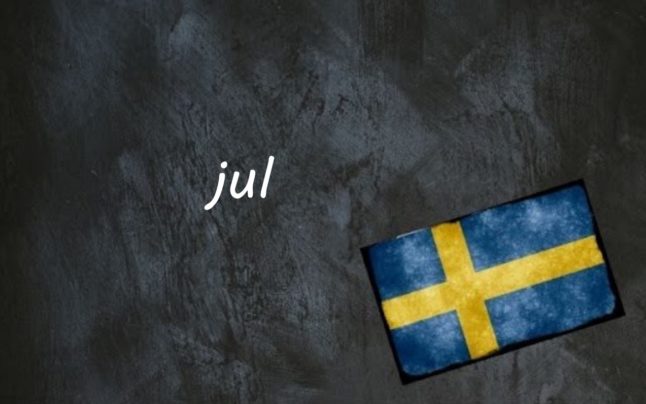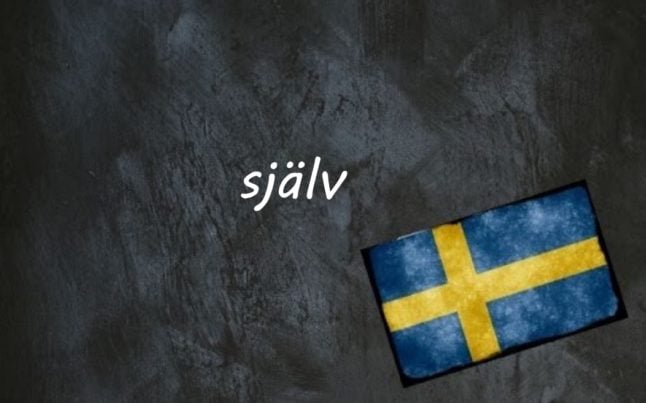That word is jul, which you’ll hear in the greeting God Jul! (Merry Christmas!) and as a prefix added to just about any noun or word to give it a festive feel, such as julsång (Christmas song), julstämning (Christmas atmosphere), julshoppa (to shop for Christmas gifts and items), julmat (Christmas food), julstäda (to clean the house for Christmas)… we could go on.
And on and on: if there’s one thing Swedes enjoy more than holiday preparations, it’s creating compound words. Another option is to turn jul into an adjective: julig means “Christmassy”.
- Don’t miss any of our Swedish words and expressions of the day by downloading The Local’s new app (available on Apple and Android) and then selecting the Swedish Word of the Day in your Notification options via the User button
English speakers might spy a resemblance to the outdated term “yule”, and there are related words in most Nordic languages: Norwegian and Danish jul, Icelandic jól, and Finnish joulua. All these words do indeed share an origin in Old Norse jól and can be traced further back to similar words in proto-Germanic languages.
In both English and Swedish today, jul and yule are specific references to Christmas: the Christian holiday and the surrounding season.
But that wasn’t always so.
The meaning of older forms of the word jul were used to define different parts of the winter season depending on where in Sweden or Scandinavia the speaker was located.
In fact, language historians aren’t sure exactly where it originally came from or what it meant in the earliest times, whether it was always linked to a specific festival or feast, or started out as a more general term for the winter season. The only thing that’s known for certain is that it predates the Christian celebration of Christmas, and that you’ll hear it a lot throughout December in Sweden.
Example sentences:
Jul, jul, strålande jul, glans över vita skogar
Christmas, Christmas, brilliant Christmas, shine over white forests (lyrics to a beloved wintery tune)
Snart är det jul!
It’s nearly Christmas!
Need a last-minute Christmas gift idea?
Villa, Volvo, Vovve: The Local’s Word Guide to Swedish Life, written by The Local’s journalists, is available to order. Head to lysforlag.com/vvv to read more about it. It is also possible to buy your copy from Amazon US, Amazon UK, Bokus or Adlibris.



 Please whitelist us to continue reading.
Please whitelist us to continue reading.
Member comments